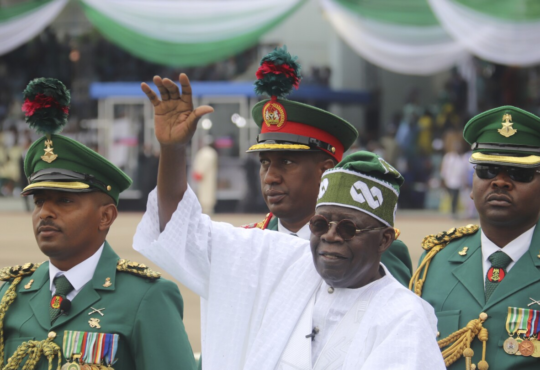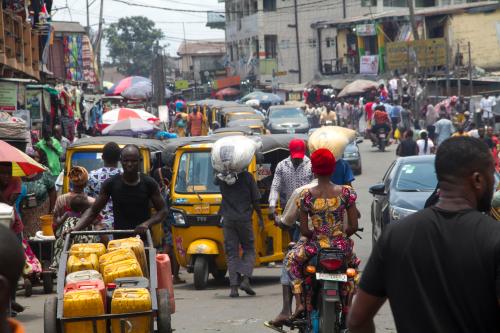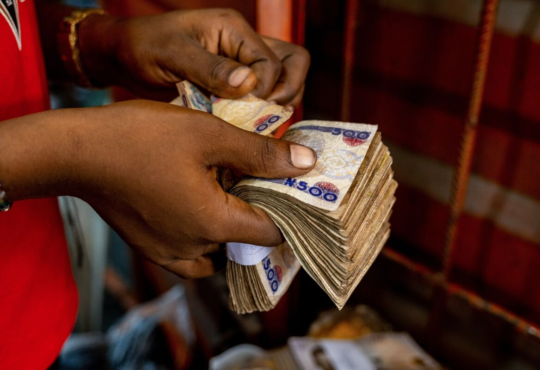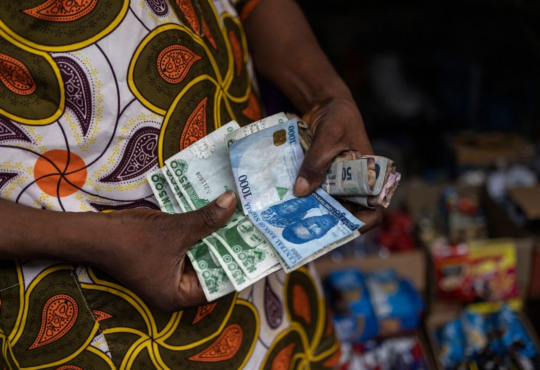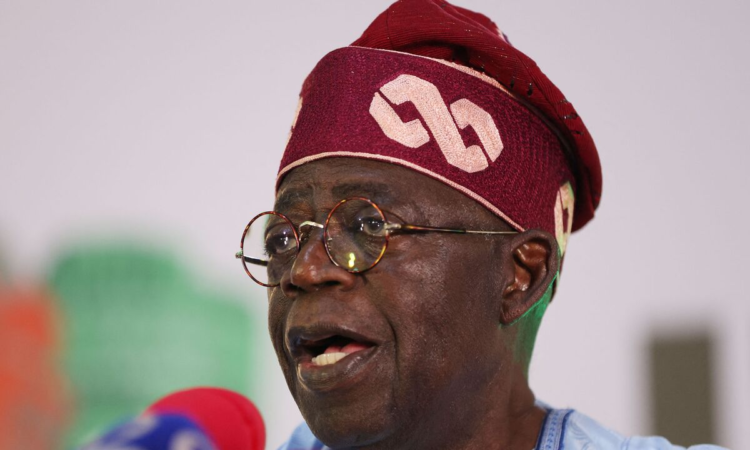
Connecting decision makers to a dynamic network of information, people and ideas, Bloomberg quickly and accurately delivers business and financial information, news and insight around the world
Americas+1 212 318 2000
EMEA+44 20 7330 7500
Asia Pacific+65 6212 1000
Connecting decision makers to a dynamic network of information, people and ideas, Bloomberg quickly and accurately delivers business and financial information, news and insight around the world
Americas+1 212 318 2000
EMEA+44 20 7330 7500
Asia Pacific+65 6212 1000
Bloomberg Surveillance with Tom Keene, Jonathan Ferro & Lisa Abramowicz live from New York, bringing insight on global markets and the top business stories of the day.
The economy and markets are "under surveillance". Bloomberg Surveillance, covering the latest news in finance, economics and investments.
A feature documentary about Sam Bankman-Fried and the stunning collapse of FTX, his cryptocurrency exchange.
Sporting Lisbon Football Club Weighs Minority Stake Sale
Zambia Aims to Resolve Debt Revamp Standoff Within Three Months
Traders Pare ECB, BOE Rate-Cut Bets After Stronger PMI Data
UK Mortgage Approvals, Consumer Credit Rise More Than Forecast
UK Economists Upgrade Outlook With BOE Seen Cutting Rates in May
Next Sees Material Impact from Red Sea Shipping Delays
Cathie Wood Buys Tesla Shares Just as Wall Street’s View Dims
Suspended Altice Executive Leaves Drahi’s Telecoms Empire
Microsoft Adds AI Key in First Change to PC Keyboard in Decades
Billionaire Space Battle Heats Up as Bezos Eyes SpaceX Rival
AI Hallucinations Are a Boon to Creatives
How to Get a Job in the Age of AI, According to a Top LinkedIn Executive
Samsung Places AI at Forefront as 2024 Phone Launches Kick Off
Vietnam Detains Ex-PetroVietnam Chair in Power Abuse Probe
Meloni Sees Italy Growing Faster Than EU Partners This Year
Just a Billion Doesn't Cut It on This Exclusive Florida Island
Who Was Jeffrey Epstein, and Who Was Linked to Him?
JD Sports Issues Profit Warning and Blames Weather for Weak Sales
The NBA's wild night: 5 teams score 140 points, 4 teams score 130 in losses
US Must Stop ‘Swatting’ From Becoming an Election Weapon
Taxing Groundwater Is a Sure Way to Preserve It
Coming Rate Cuts Portend a 1980s-Style Economic Resurgence
AI Hallucinations Are a Boon to Creatives
Why America’s Car Buyers Are Rethinking EVs
These Are the Five Potential Trouble Spots That Could Knock the Global Economy Off Course
FTSE Bosses to Overtake Average Worker’s Annual Pay by Lunchtime
The World’s Next Big Carbon Capture Challenge? Figuring Out How to Use It
Biden’s $400 Billion Green Bank at Risk as GOP Hunts for Next Solyndra
Want More Transit (and Federal Funding)? Build Housing That Supports It
Iceland Keeps Feeding Its Tourist Boom. Will It Push Locals Out?
How to Build Tech Hubs in the American Heartland
Bitcoin Struggles to Recover After Near 10% Drop
JPMorgan, Goldman in Talks With Grayscale About Bitcoin ETF Role
Bitcoin Spot Market Is Still a Little ‘Weird,’ ProShares Strategist Says
Bola Tinubu
President Bola Tinubu’s effort to shake up the Nigerian economy and boost growth is already stumbling. After succeeding Muhammadu Buhari in late May, he scrapped costly fuel subsidies, removed the central bank governor and overhauled the country’s exchange-rate policies — effectively devaluing the currency, the naira. Tinubu’s initial steps enthused investors but elicited a public backlash over rising food and fuel costs. By mid-September, Tinubu had paused the fuel subsidy phase-out and the naira was in freefall on the informal market, frustrating his efforts to close the gap between the currency’s official and unofficial price.
About 40% of Nigeria’s more than 200 million people live in dire poverty, according to the World Bank, with just 11.8% of the labor force involved in wage employment, according to the nation’s statistics agency. Inflation climbed to an 18-year high of almost 26% in August, with food costs growing 29%. Corruption is endemic, many state institutions are dysfunctional and armed bandits and Islamist militants have free rein across swathes of the country’s north. The government spent 96% of the revenue it collected in 2022 on servicing its loans. Oil production — the lifeblood of the economy — has reached lows last seen in the 1980s. In August, Nigeria produced only 1.18 million barrels of crude, nearly 500,000 barrels below its allotted OPEC quota, which it has been unable to meet for at least two years. In June, the World Bank forecast that Nigeria’s gross domestic product would only expand by 2.8% this year, barely keeping pace with the increase in the population, and “far slower than needed to make significant inroads into mitigating extreme poverty.”


